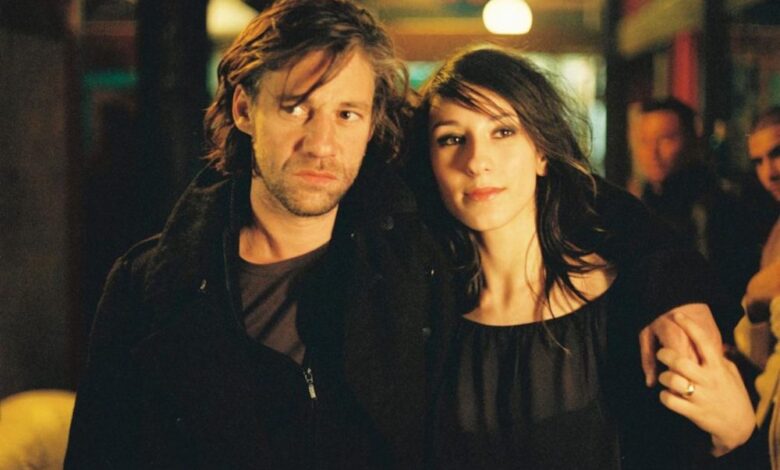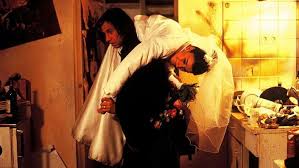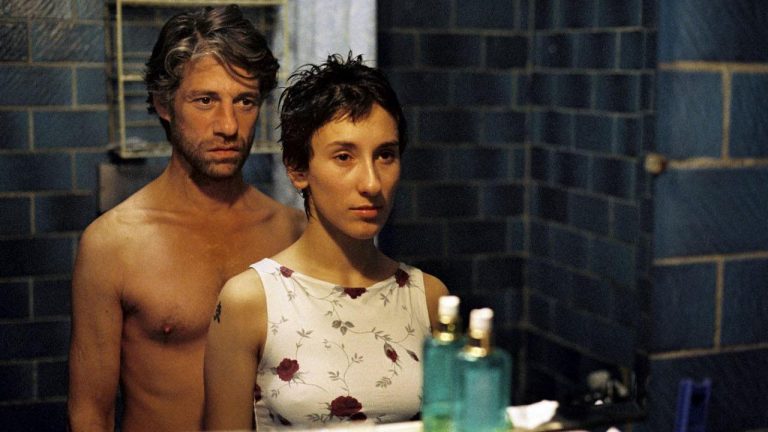Head-On (2004): “She didn’t want love. She wanted to disappear inside a man.”

Head-On, directed by Fatih Akin, is not a love story. It is a scream. A bruised, bleeding howl from two bodies crashing into each other—not with affection, but with desperation. Forget flowers and sweet nothings. This is about addiction, rage, sex, and pain masquerading as intimacy. It is Berlin nightclubs, Turkish tradition, a suicide pact that becomes a twisted marriage, and a woman who wants to destroy herself by feeling everything at once.

🔥 Flesh Before Feelings
Sibel (Sibel Kekilli) isn’t looking for love. She’s looking for escape—from her conservative Turkish family, from her identity, from herself. And she finds Cahit (Birol Ünel), a middle-aged, suicidal alcoholic who’s already drowned in nihilism. Their sham marriage is meant to be a key to freedom. But it unlocks something darker: a vortex of violent sex, drugs, and raw desire where bodies matter more than words.
The sex isn’t beautiful. It’s frantic, ugly, real. She bites, he bleeds. She moans, he punches walls. Their love is a battlefield—except love might be the wrong word. What they truly share is a kind of sacred ruin, a shared self-destruction that makes them feel alive.
🌪 Chaos as Romance
In Head-On, romance is war. Fatih Akin doesn’t flinch—he shoves the camera into every orgasm, every breakdown, every lie. The scenes between Sibel and her random lovers are more than scandalous—they’re confessions. She’s not cheating. She’s searching. Cahit, too, is not a savior. He’s a mirror. They’re both wrecked and reckless, drawn together not by compatibility, but by shared trauma and carnal hunger.
There’s no Hollywood polish here. Just grime, noise, and the pounding of blood between the thighs and in the heart.

💔 The Illusion of Redemption
When Cahit finally falls in love—too late—he’s left clutching absence. Sibel spirals further. They try to heal, but their wounds have grown teeth. Even when they meet again, the world has moved on. Love, if it ever existed, is now a ghost. The final scenes don’t offer catharsis, just silence. In Head-On, desire doesn’t save—it devours.
Head-On is a car crash of cultures, bodies, and brutal emotions. It’s a film soaked in sex, not for pleasure, but for survival. It leaves you raw. It touches places most films don’t dare. And when it ends, you won’t be sure if you watched a tragedy or an erotic confession of everything we’re too afraid to say out loud.
This is not a film. It’s an open wound.





